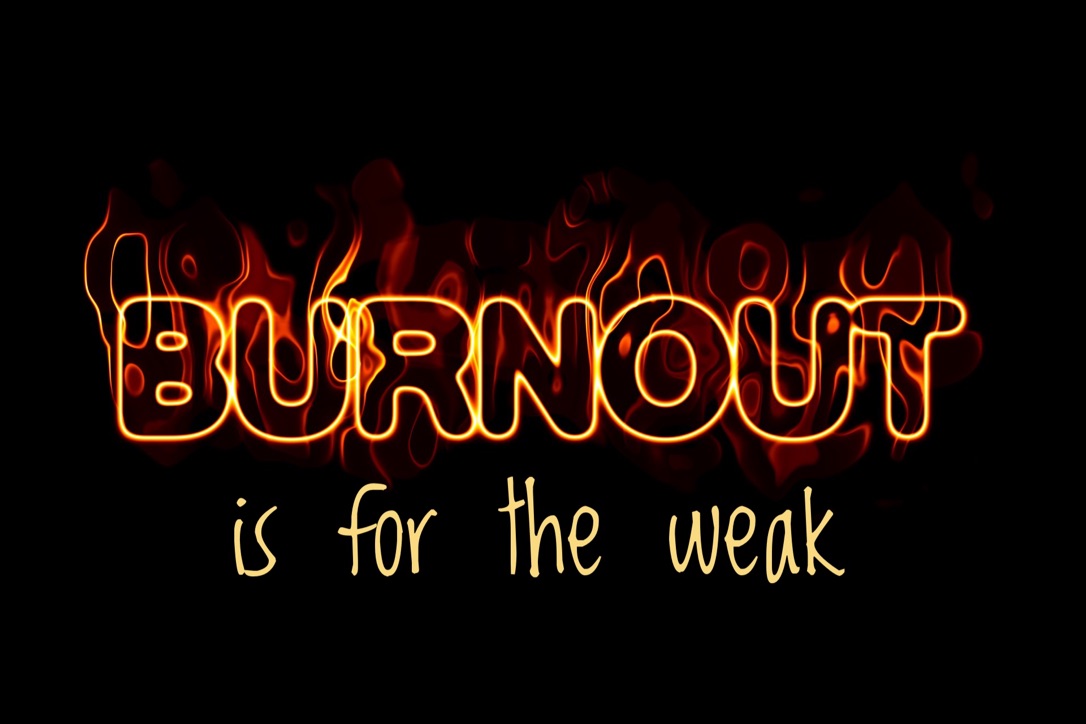Burnout is for the Weak
My tyres screeched as I pulled into the drive. As usual I was late. Hurriedly I made my way to my front door but was interrupted. My neighbour, Denis, asked “How do you keep going?”. It was a question he’d asked me before.
I’d been working 70+ hour weeks for some time. It came with the territory.
As a fast growth startup there was an unrelenting need to win new deals, hire new staff and ensure we were delivering what we’d promised.
This particular day I’d been up since 6am, had made back to back calls during the 3 hour drive to London (I preferred to drive as it kept me in control), had 5 key meetings during the day then repeated the 3 hour drive back home.
It was at the end of this day my neighbour, with a smile that lit up the street, interrupted my flow.
I smiled. “I’m fine, I don’t get stressed”.
“I don’t get stressed”
I ran inside and bounded up the stairs to read to my daughters. My six year old had already fallen asleep. The nine year old was patiently waiting.
As we pulled out whatever book was the current favourite, I snuggled in bed next to her, and began to read.
Three minutes later, I was jolted awake.
“Dad! You’ve fallen asleep, keep reading!”
My neighbour was not alone in asking. Family and friends would ask me similar questions. Each time I’d smile in the same way I did to my neighbour. “I’m good”, “I’m fine”, or “I love it”.
“I’m fine”
And the truth? I genuinely thought I was. I’d been pushing it for some time yet I knew I was able to handle levels of stress that caused others to wilt.
My then wife and I had lived for 3 years with minimal salary, we’d put the house on the line for a business bank loan, and we were investing every penny we could in the company’s growth.
I genuinely felt like superman. Burnout was for the weak minded, those not able to hack the pressure at the sharp end. I knew I was different. Had known it since being a little boy.
I felt like superman
As the company continued to grow so did its demands.
We were winning large contracts within financial services, opened offices in London and increased our office space in Derby, and continued to hire, hire, hire. We delivered services 24/7 with five minute response times. We rarely lost a customer and our staff really enjoyed working with us
It was a great place to be.
It wasn’t just the business that placed its demands upon me.
I would take my daughters to dancing, swimming, acting and climbing lessons every week. There were long term family illnesses which required me to spend extended periods away from the office. Close family members were involved in natural catastrophes and as a family we willingly provided whatever support we could.
Five years into the fast growth however and things changed. I began to feel like someone had fed me sleeping tablets mid morning, and mid afternoon. I would wake up feeling like I had not slept. We would go out somewhere as a family, and I would need a snooze when we had parked up, or fall asleep whilst waiting for the food to arrive in a restaurant.
At the time I felt this was normal. I could justify it all. I certainly didn’t have a problem.
I was wrong
Without realising it I had burned out. I felt exhausted. I felt way older than my 37 years. I couldn’t eat certain foods without feeling terrible. The doctor called it Irritable Bowel Syndrome (IBS). He gave me a food list of what to eat, and what to avoid, and suggested other psychological factors were at play. I researched IBS, and found a definitive list of foods which were fine, and for a period continued the delusion that all was well.
But before long I was worse than ever. I turned up to work, barely functioning.
Thankfully I had a great team around me, but I knew my time was up. I needed to take time out.
I placed my management team in charge and took a six month sabbatical. It was only then I realised just how burned out I had become.
On stopping I realised how burned out I was
It was a long road to recovery during which I researched every aspect of recovery. Topics included nutrition, supplementation, meditation, fitness, the impact of cortisol/Adrenalin, and psychology.
As I recovered, I was able to start working with senior leaders to help them protect against, or recover from, burnout.
So, is burnout for the weak?
In truth, maybe some are more likely to burnout than others. But in my experience, it is the strong that need to be the most careful, as they have a belief system that keeps them blind to the possibility. Just like me.
My answer now to lovely neighbours like Denis when they ask me about my work/life balance? I engage with them. I try to be open. Am I doing too much? Have I got balance? Am I still putting into practice all the things I learned the hard way?
An analogy I often use when working with those at risk of burnout is the canary question.
Miners of old would take canaries into the mines. As long as those canaries sang, the air quality was safe. But the moment those canaries stopped singing, the miners knew they had to exit, and exit quickly.
My canaries keep me safe
I’ve learned that my equivalent of the canaries singing is:
- Feeling mentally alert
- Working out at the gym at least three times a week
- Absence of dark rings under my eyes
- Weekly time for nature, meditation and reflection
By keeping on top of these four areas, I know that my life is in balance.
When I feel tired I allow myself more sleep, including a 20 minute afternoon snooze without guilt. If I feel tired for more than a few days, I take a day off to do nothing.
Burnout affects us in many ways. Physical illnesses, relationship strains, and poor decision making are just some of them. You deserve more.
What are your canaries? Are they singing?
If all is silent, you may want to get in touch.
Mark Bateman is a Disruptive Coach. He works with senior leaders to help achieve meaningful purpose. To book a confidential call or meeting with Mark, use this link: https://calendly.com/mark-bateman


